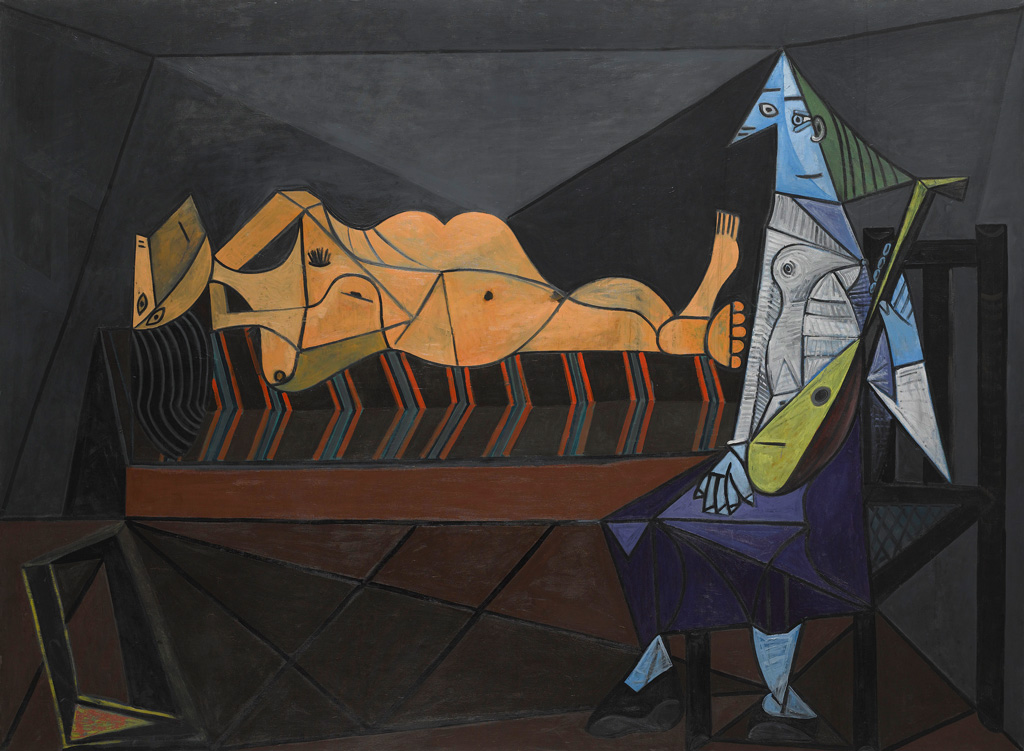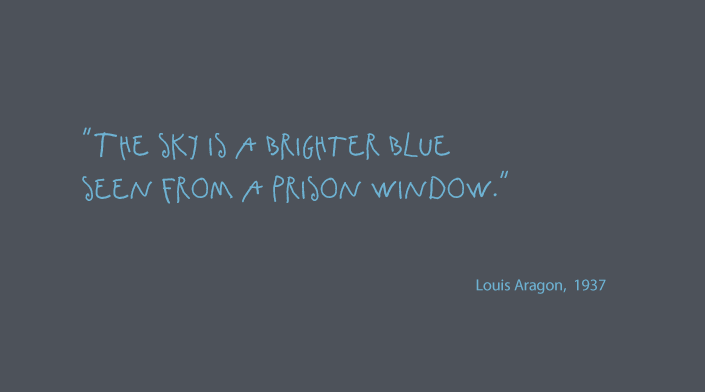Overcome the inevitable and see what contemporaries are afraid to face.
After Guernica, the painter's shift towards scenes from everyday life was also bewildering to his contemporaries. In a little-known text, Aragon ventured his interpretation: "This new, fantastic imagery which, time and time again, breaks down and reassembles familiar objects, three or four new objects chosen for this new way of painting, [¼] its secret and its charm will undoubtedly not be apparent to many. However, I believe it becomes clearer when I say that these paintings, so far removed from the realities of war, could never be understood without taking into account the Spanish Civil War."[1] And he concluded, "The sky is a brighter blue seen from a prison window."
Through the poetic and political power of his paintings, Picasso attempted to overcome the inevitable and make his contemporaries see what they were afraid to face. From that period on, Picasso donated funds to the Republicans[2] and, in early 1939, agreed to sign a petition to release the Spanish intellectuals held in French refugee camps.
In April 1940, after the declaration of war, the artist, who already had two French children, applied for French citizenship. This information came out[3] after Russia released the files from the Paris Police Headquarters in 2000; these records had been seized by the Nazis in 1940 and later recovered and held by the Soviets for fifty years. In the context of the banning of the Communist Party after the German-Soviet pact, Picasso's sympathies with politically committed artists and writers led to an unfavorable report from the intelligence service: "After entering France in 1900 to study painting, the above-mentioned person complied with the regulations concerning foreigners' residence, and is in possession of a residence permit issued on November 23, 1937, valid until November 30, 1942. [...] It is important to note that he did not always show the attitude towards France that every foreigner should have in a host country. On May 7, 1940, a report indicated that a few days earlier, at the Café de Flore, Ruiz-Picasso had violently and publicly criticized our institutions and openly advocated communism. [...] From all the information gathered, it appears that this foreigner has no grounds for naturalization; moreover, [¼] he must be considered suspicious from the national point of view."[4] His application for French citizenship was rejected.
[1] Louis Aragon, “Le bleu de Madrid.” Regards, no. 264, February 2, 1939.
[2] Géraldine Mercier, “Picasso au cœur du réseau d’aides aux républicains,” Guernica, Musée national Picasso-Paris/Gallimard, 2018, p. 223.
[3] In Pierre Daix and Armand Israël, op. cit.
[4] Direction des renseignements généraux, brigade spéciale, Préfecture de police de Paris, report dated May 25, 1940.






 Summary
Summary